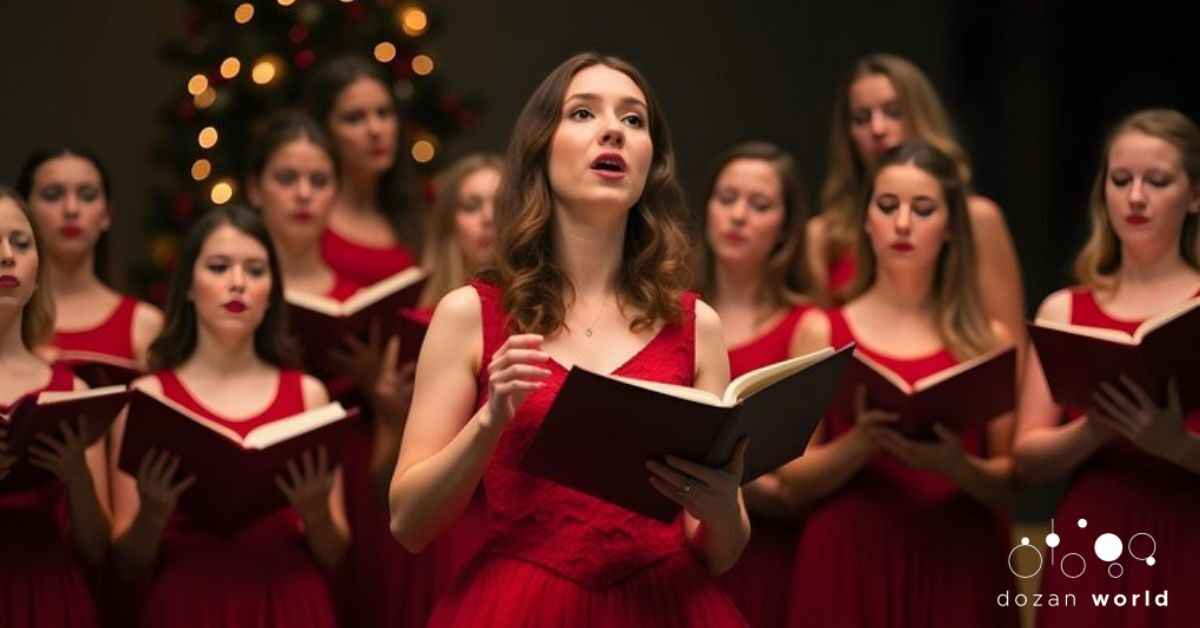SSA (Soprano, Soprano, and Alto) Choral Music has long been a favorite for school choirs, women’s vocal ensembles, and emerging groups. It is often the stepping stone for becoming a choir artist. The compact structure makes it a favorite with beginners and those taking the stage for the first time. The repertoire practiced in most Western music schools and choral groups primarily focuses on Western music. It isn’t surprising considering the easy accessibility to classical and contemporary Western music. But what if you could add a new twist to your choral group and experiment with something new? If you believe it’s time for a change, it is worth giving a Middle Eastern touch to your choir.
Open A New Chapter for Your Choir
As a music teacher or someone taking early-stage lessons, you may not know much about Middle Eastern SSA choral music. After all, it isn’t as popular as liturgical texts in Masses, Requiems, Cantatas, and Oratorios. Western choral music has been preserved through centuries of notation and print and shared with the world. In the Middle East, most of the heritage has been passed down orally. The people in the region have preserved this rich cultural heritage in their chants, prayers, and sacred songs. Hence, it has long existed on the margins of the choral world as far as Western societies are concerned.
Thanks to the world coming closer due to technology, this rich musical legacy is slowly finding its way into Western choirs. In most Western choirs and music schools, we see increased interest in choral music from the Middle East. Not everyone may already be practicing and performing them on stage, but the general curiosity and awareness have increased. By embracing this new trend, your choir group will open a new chapter that exposes you to the Middle East’s cultural depth, musical diversity, and spiritual vocabulary. Imagine performing in front of an audience and treating them to something they haven’t heard before; isn’t it pure bliss?
Middle Eastern choral music is inherently expressive and personal. The music has been shaped by the nature of the society, which is spiritual and retains the authenticity of its origins. Each tribe in this region has added to the diversity of the music over hundreds of years. When you embrace SSA choral music from this region, you will explore new sounds and new stories and understand the depth of spirituality in this part of the world. It won’t replace what’s familiar to your choir; it will enrich your musical journey.
Preserving Choral Traditions from the Middle East
While the Internet has offered a platform for Middle Eastern choral music to make its way into Western choirs, platforms like Dozan World play an important role in preserving and documenting the choral traditions of this region and making them accessible to the rest of the world. They work closely with composers to transcribe and arrange these pieces for Western SSA ensembles. Explore these online collections, and you will come across melodies and sacred music that remained confined to the region for centuries.
Don’t be surprised if you find a lot of similarity to the hymns you hear in the Church. This music is rooted in places where Christianity first took shape. Your choice group can reimagine what sacred choral music can be. In today’s world, where embracing diversity is bringing people closer, your choir will broaden its range by embracing music from the Middle East. You will celebrate a musical tradition that always belonged to you and break the barriers of language and culture.
Exploring Middle Eastern music in your SSA arrangements adds a new path of self-discovery to your choice. Your choir group will engage with a new repertoire celebrating centuries of traditions.



